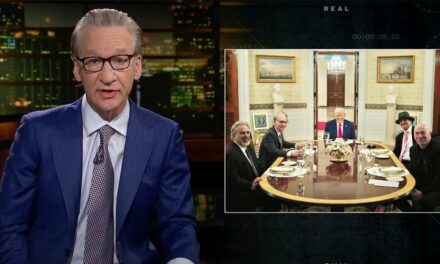Renowned comedian Dave Chappelle has recently opened up about his controversial statement made during his 2016 Saturday Night Live (SNL) monologue, where he expressed a willingness to give then-President-elect Donald Trump a chance. This moment not only sparked discussions in the comedy world but also reverberated across various socio-political platforms, raising questions about comedians’ roles in commentary and public opinion.
Chappelle, known for his keen observational humor and biting social critiques, stepped onto the SNL stage shortly after the shocking results of the 2016 presidential election. His monologue became a pivotal moment in late-night television, as the nation grappled with the implications of Trump’s victory. It was a time when emotions were running high, and people were polarized by the election outcomes.
During this performance, Chappelle remarked, “I’m going to give him a chance.” This phrase was significant, as it came at a time when many Americans were expressing anger and dissatisfaction toward Trump’s campaign rhetoric and policies. Chappelle’s comments, therefore, were not just a reflection of his personal stance but also an invitation for others to consider the possibility of unity and understanding in a deeply divided country.
In a recent interview, Chappelle elaborated on his reasoning behind that statement and its broader implications. He explained that, as a comedian and public figure, he recognizes the power of words and the influence they can have on people’s perceptions and actions. Chappelle emphasized that his comment was intended to provoke thought rather than blind support, encouraging individuals to engage with differing viewpoints rather than retreat into echo chambers.
The comedian highlighted the importance of dialogue in American society, especially during challenging political climates. He noted that although his statement might have been misinterpreted by some, it was grounded in a genuine desire for understanding. Chappelle argued that dismissing a leader before even giving them a chance to govern was counterproductive and only served to heighten divisions.
Chappelle’s approach to comedy and politics is often described as nuanced. He seamlessly blends humor with critical commentary, encouraging audiences to reflect on complex issues. This duality was evident in his SNL monologue, where laughter was interspersed with moments of reflection. By acknowledging Trump, Chappelle aimed to disrupt the prevailing narrative of resistance, suggesting that even in disagreement, there was merit in attempting reconciliation.
The context of Chappelle’s original statement is important; he was addressing an audience filled with people who were largely disappointed with the election results. The immediate reaction to his words varied widely, with some applauding his open-mindedness while others condemned him for his perceived naivety. Chappelle himself faced backlash from certain communities who felt that any support for Trump, even a slight indication, was inappropriate given the divisive and often inflammatory character of his presidency.
Chappelle’s willingness to extend an olive branch relates to a larger discourse on political polarization in America. Where many individuals sought to rally against Trump, Chappelle’s perspective embodied a more Dicksonian approach, one that sought understanding over confrontation. His stance raises questions about the responsibility of comedians and public figures: should they be expected to take definitive stances, or can they advocate for a more open dialogue?
In the broader framework of comedy, Chappelle’s remarks shine a light on the transformative power of humor. Stand-up can act as a medium for challenging societal norms and confronting uncomfortable truths. For Chappelle, comedy becomes not just entertainment but a forum for exploring and addressing systemic issues. While he has been rigorous in critiquing societal injustices throughout his career, he also stresses the significance of acknowledging all voices, regardless of whether one agrees with them.
As Chappelle continues to evolve as an artist, the dialogue around his 2016 SNL monologue remains relevant. Discussions surrounding political correctness, freedom of expression, and the ethical responsibilities of entertainers persist, drawing in audiences from varied backgrounds. Chappelle has time and again pushed the envelope of comedy, challenging audiences to confront uncomfortable topics rather than shying away from them.
In terms of the immediate impact following his SNL appearance, opinion in the media was divided, and public reactions were swift. Some praised his remarks as a bold and necessary step towards healing a fractured nation, while others were quick to label him as complacent or irresponsible. Chappelle’s ability to engage with contentious subjects through humor fosters a unique space where even the most polarizing figures can be acknowledged, if not understood, in this case, Trump.
Chappelle’s comedic philosophy suggests that humor can act as a balm for societal tensions. Over the years, his routines have navigated a plethora of topics, including racial identity, economic disparity, and police brutality. However, his ability to adapt his narrative style to include a broad spectrum of viewpoints, even those that clash with mainstream opinions, sets him apart in the entertainment landscape. He continues to be a provocative voice that challenges both his peers and audiences, emphasizing the importance of conversation over combat.
As we reflect on the implications of Chappelle’s statement regarding Trump, it is clear that the conversation extends beyond politics. It delves into the very foundation of our democratic ideals, where civil discourse becomes essential for progress. Chappelle’s remarks resonate as a reminder that understanding does not equate to agreement. Rather, it signifies a willingness to listen and engage with perspectives that differ from one’s own.
In conclusion, Dave Chappelle’s commentary during his 2016 SNL monologue encapsulates a critical juncture in America’s sociopolitical discourse. His intention to give Trump a chance is representative of a deeper yearning for dialogue and understanding amid division. Chappelle, through his art, continues to provoke thought and inspire conversations that are necessary for the collective improvement of society.
For audiences grappling with the complexities of political identities, comedy remains a powerful tool that can illuminate potential pathways toward dialogue, fostering an environment where varied perspectives can coexist, even amidst disagreement. As the nation continues to navigate its political landscape, Chappelle’s words serve as a blueprint for how we may strive to engage with one another, emphasizing the importance of remaining open-hearted and open-minded.
































